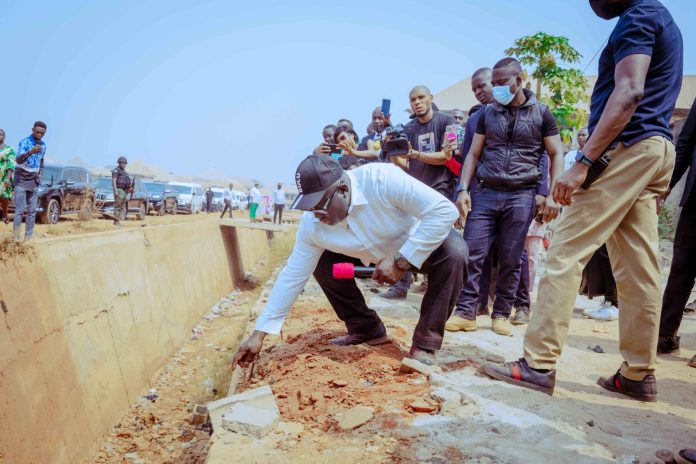By Kenneth Orusi
Governor Sheriff Oborevwori of Delta State has consistently emphasized his commitment to transparency, accountability, and sustainable development in his administration.
However, a significant challenge hindering the realization of these goals lies in the persistent engagement of incompetent indigenous contractors.
For meaningful progress to be achieved, it is imperative that the governor takes decisive action to disengage underperforming contractors who have proven incapable of delivering on their mandates.
Watch video of another inspection rocked by substandard projects
Firstly, incompetence among contractors often translates to poorly executed projects, which not only waste public resources but also tarnish the reputation of the administration.
Instances of substandard roads and poorly maintained infrastructure are prevalent in Delta State due to the activities of contractors who lack the expertise, experience, or resources to meet project requirements.
These deficiencies compromise the quality of public services and, ultimately, the welfare of citizens.
Secondly, failed or delayed projects hinder economic growth. Poorly executed infrastructure projects can discourage investment and reduce economic opportunities.
For instance, a road project left incomplete due to contractor inefficiency disrupts trade, transportation, and agricultural activities, thereby affecting livelihoods.
By engaging competent contractors, the government can ensure timely project delivery, which boosts economic development and public trust.
Furthermore, the continued engagement of incompetent contractors breeds a culture of mediocrity.
When such contractors are allowed to operate without accountability, it sends a signal that quality and competence are not priorities for the government.
This culture undermines efforts to establish Delta State as a hub of excellence in governance and development.
Governor Oborevwori should prioritize meritocracy over patronage in awarding contracts.
While supporting indigenous businesses is commendable, it must not come at the expense of development and efficiency.
A thorough review of ongoing projects and contractor performance is essential.
Those found wanting should be disengaged, and stringent criteria for future contracts should be established, ensuring only capable and credible contractors are engaged.
Additionally, measures such as periodic audits, performance monitoring, and enforcement of penalties for defaulting contractors should be implemented.
These steps will not only deter incompetence but also attract skilled contractors willing to deliver quality work.
Governor Oborevwori’s administration has the potential to set a new standard in governance and infrastructure development in Delta State.
By disengaging incompetent contractors and fostering accountability, the state can witness rapid and sustainable progress, benefiting all Deltans.
Kenneth Orusi, is the Publisher and Editor-in-chief of The Story and Chairman, ICC, Delta NUJ

















